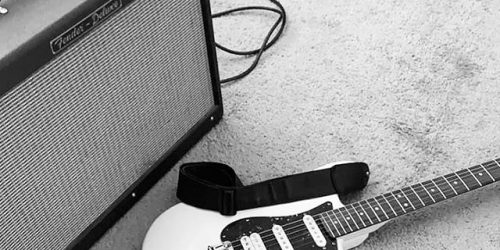How to Build a Healthier Relationship with Money — and Keep It

We may earn commissions from the companies mentioned in this post. View our FTC disclosure for more information.
Image via Pexels
Money isn’t just numbers. It’s tension in your chest when bills hit. It’s the quiet panic before payday. It’s the hesitation before asking for what you’re worth. Most people think fixing it starts with spreadsheets. It doesn’t. It starts with how you explain money to yourself. Without clarity, even good habits backfire. You save but feel unsafe. You earn but still feel behind. A healthier relationship doesn’t mean perfection. It means steadiness. Trust. Enough room to breathe between decisions.
Name the Narratives, Then Break Them
Every money habit has a backstory. Maybe it’s the way your parents argued about expenses. Maybe it’s being praised for “saving every dime” or shamed for “wasting” on something joyful. These patterns often calcify into scripts we don’t question. The real work begins with building awareness around beliefs, especially the ones you’ve mistaken for truth. If you treat money like a threat or a scoreboard, you’ll act like you’re losing — no matter how much you have. You’re not trying to become someone who “loves budgeting.” You’re becoming someone who doesn’t flinch at their own bank login.
Legitimacy Shifts How You Treat Money
There’s a difference between “having a side hustle” and seeing yourself as a business owner. That difference changes how you price your work, track income, pay taxes — and most importantly, how you carry yourself. When you register your business or form an LLC, you cross an internal threshold. It’s not just legal. It’s personal. You give shape and structure to something that felt abstract. Working with a platform like ZenBusiness is one of the fastest ways to formalize that shift. And once you’ve done it, you tend to act more decisively — because now you’re not “trying something.” You’re operating something.
Don’t Let Dysmorphia Define Your Goals
Money dysmorphia is real. It’s the warped lens that tells you you’re always behind — even if you’re doing fine. A six-figure earner feeling broke. A debt-free person feeling panicked. The distortion is psychological, not mathematical. The first shift is recognizing distorted financial self‑view — noticing the moment you spiral over what others might be earning or spending. It’s not comparison that poisons perspective. It’s unchecked comparison. Untreated, money dysmorphia fuels hoarding, compulsive work, and chronic dissatisfaction. Treated, it lets you zoom out and act with grounded clarity.
Turn Budgeting Into a Ritual, Not a Chore
Budgeting fails when it feels like punishment. But it doesn’t have to. When you treat it like care — something done to support, not restrict — your entire nervous system reacts differently. That’s why some people light a candle before they open their expense tracker. Others rename budget categories with personal values: nourishment, celebration, stability. The Dollar Stretcher recommends infusing joy into budgeting by making it a weekly practice — like stretching or calling a friend — instead of a monthly panic attack. The goal isn’t to control every dollar. It’s to stop feeling like your dollars control you.
Systems Beat Willpower, Every Time
Impulse control is not about character. It’s about scaffolding. If your savings plan relies on “being good this month,” it will fail. That’s not judgment — that’s behavioral design. One of the simplest shifts? Automate it. Let your paycheck split off savings before it hits checking. Set reminders that feel like encouragement, not scolding. And use visuals — progress bars, milestones, even colored jars. These are proven ways to start automating savings to break impulses before they take hold. You’re not building discipline. You’re building defaults that make discipline unnecessary.
Let Values Replace Guilt
Budgets often fail because they start with guilt. “Stop spending.” “Cut back.” “You don’t need that.” But the people who thrive financially? They don’t focus on restraint. They focus on alignment. The budget is a reflection of their values, not their limits. They ask: What matters to me right now? What am I working toward? What am I ready to release? When your money matches your moment, shame has less room to hide. You can start small. Even choosing where to spend a bonus or how to cancel a subscription can open up clarity. Begin with a value‑centered money mindset shift instead of another restrictive spreadsheet.
There’s no final destination in your relationship with money. No perfect budget. No flawless mindset. But there are pivots — each one a small reorientation toward clarity, dignity, and steadiness. Some pivots will feel external: a system, a registration, a savings rule. Others will feel almost invisible: the thought you catch, the pause before a purchase, the moment you don’t shame yourself. Start wherever the friction is loudest. That’s usually where the shift is most needed. Money doesn’t need to feel light. But it doesn’t need to feel heavy, either. It just needs to feel like something you can finally hold.
Discover insightful articles and practical advice on everything from career development to home renovation at Man Things, your go-to resource for personal and professional growth.





